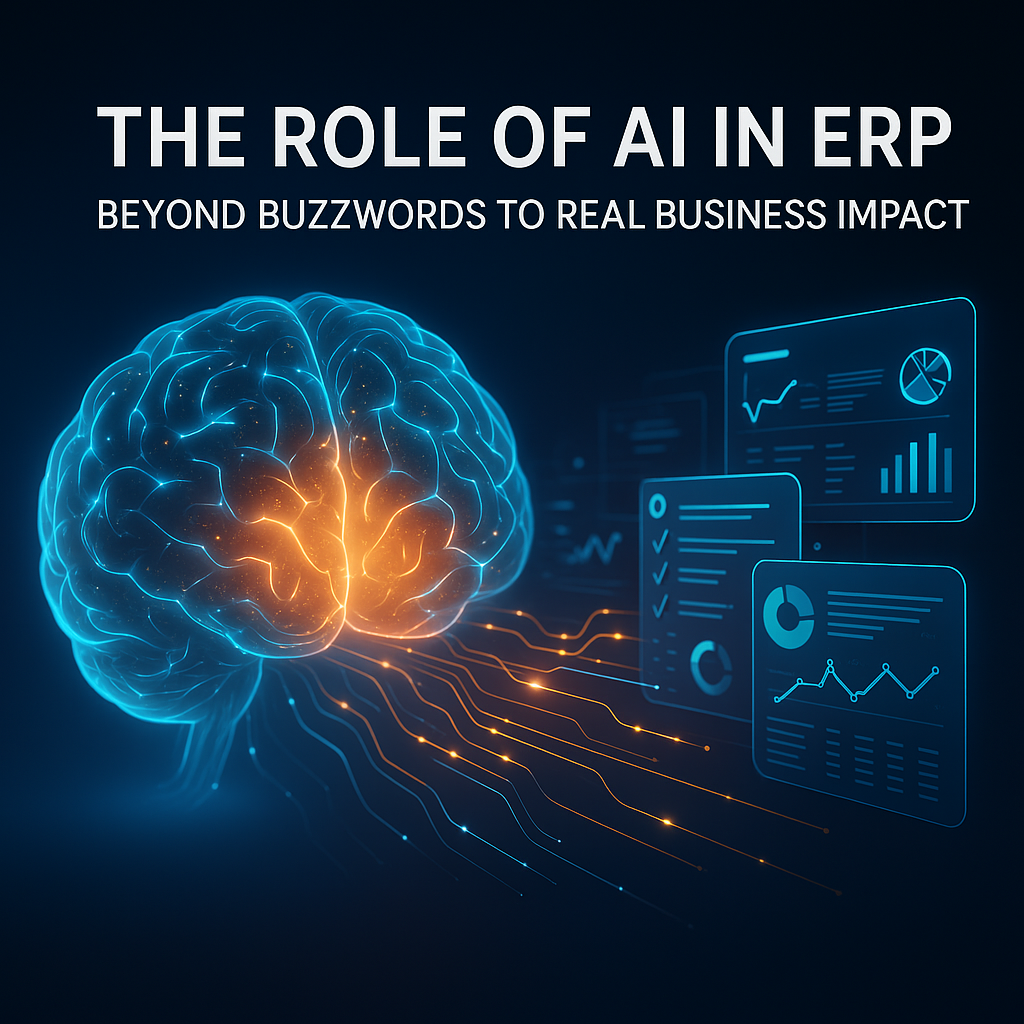
The Role of AI in ERP: Beyond Buzzwords to Real Business Impact
AI has become the buzzword of the decade, but in ERP it’s more than hype — it’s reshaping how businesses run their operations. From predictive analytics to intelligent automation, ERP vendors like SAP, Oracle, Microsoft Dynamics, IFS, and Infor are embedding AI capabilities directly into their platforms.
The question is no longer if AI belongs in ERP, but how it can be used effectively. In this article, we cut through the buzzwords and look at the real business impact of AI in ERP.
1. Where AI Is Transforming ERP Today
ERP vendors are moving fast to integrate AI into their ecosystems. Current use cases include:
- Predictive maintenance in asset-intensive industries, reducing downtime.
- Automated invoice matching in finance, streamlining back-office processes.
- Intelligent supply chain planning, using AI to forecast demand and optimize logistics.
- AI-powered analytics dashboards that surface actionable insights instead of raw data.
- Natural language chatbots for employee self-service in HR and IT.
These are not “future promises” — they’re already being deployed in leading ERP platforms.
2. Business Benefits Beyond Hype
The tangible value of AI in ERP is becoming clear:
- Efficiency gains — reduced manual workloads through automation.
- Cost savings — predictive insights cut down on wasted resources.
- Faster decisions — executives can act on real-time insights instead of waiting for reports.
- Employee empowerment — AI-driven tools allow staff to focus on higher-value tasks.
The key is not AI for its own sake, but AI that drives measurable outcomes.
3. Challenges to Adoption
While the potential is huge, enterprises still face hurdles:
- Data quality — AI is only as good as the data feeding it.
- Change management — users must trust AI-driven recommendations.
- Integration — legacy ERP environments often lack the flexibility to embed AI.
- Skills gap — organizations need talent that understands both ERP and AI.
Without addressing these, AI initiatives risk becoming shelf-ware.
4. What to Watch in 2025
Looking ahead, expect to see:
- More industry-specific AI features — e.g., healthcare compliance, retail demand forecasting.
- Deeper analytics integration with platforms like Power BI, SAP Analytics Cloud, and Oracle BI.
- Generative AI helping with ERP configuration, data migration, and user training.
- AI ethics and governance emerging as board-level priorities.
Conclusion
AI in ERP is moving from buzzword to backbone. The organizations that will benefit most are those that treat AI as an enabler of process excellence, not a shiny add-on. For CIOs and program leaders, the priority should be to identify real use cases, invest in data quality, and up-skill teams for an AI-augmented future.
